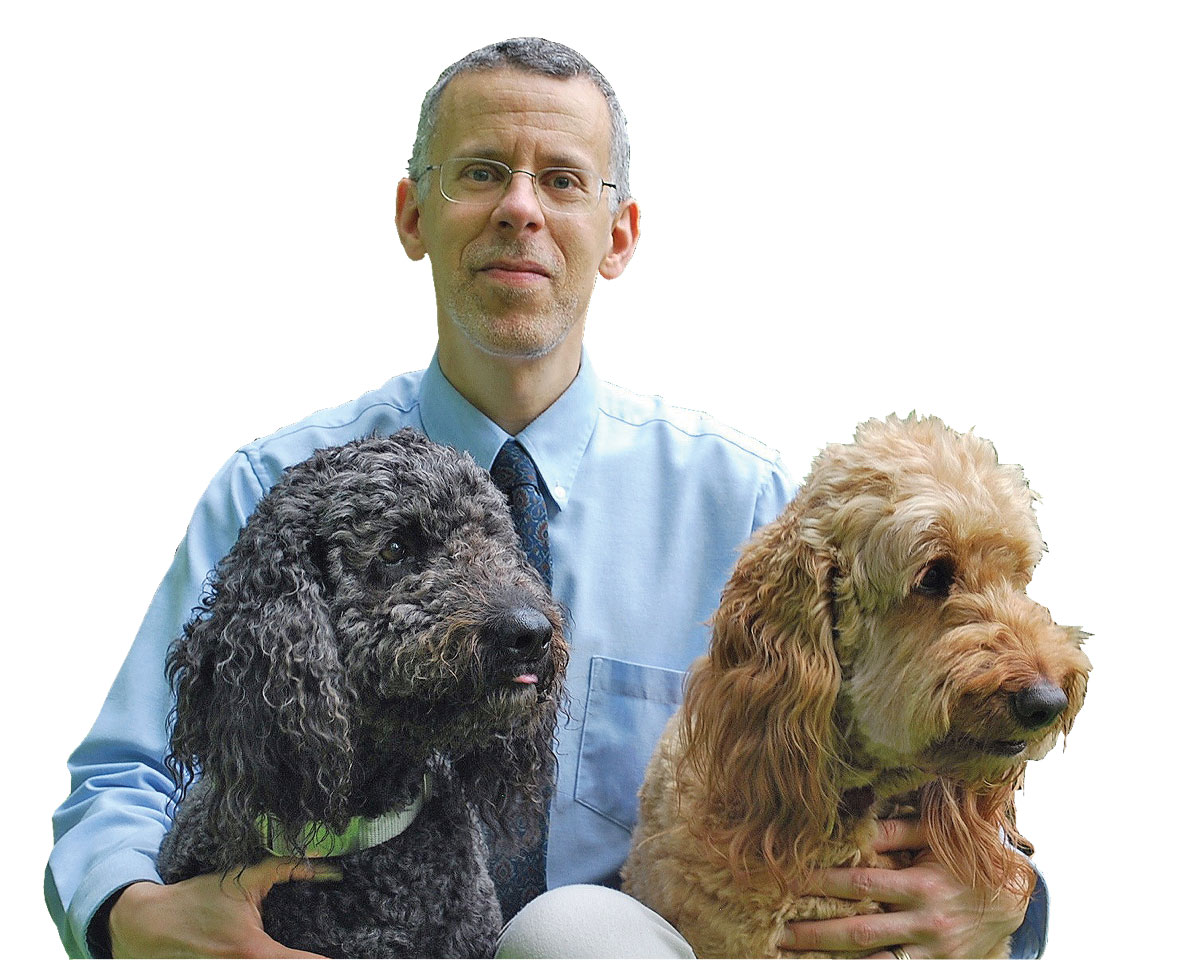I’m honored and excited to be here to answer all of your natural and holistic veterinary care questions! Many of the readers of this magazine have already adopted a holistic lifestyle. You might have even seen the voluminous and expanding research that living more naturally promotes a longer and happier life. Unfortunately though, reliable natural, holistic veterinary information can be hard to find. For example: is “people food” safe to feed to your dog or cat? Do I need to vaccinate my pets? If so, is it better for me to do it every 3 years rather than annually? Is it normal for my cat to drink water?
Ally from Stockbridge, MA writes: “We have been reading about raw food feeding. We eat all organic. But buying organic meats for our dog and cat would be very costly. Does their food have to be organic?”
I get asked this question a lot Ally, so thanks for bringing it up. The way I see it is that any fresh food is better than processed. Period. Sure, organic is best, but not essential. The freshest food may be that available from the local farmer down the road or in the next town. Even if they are not certified organic. Doing so may just be too expensive for them. Yet their chickens may be free to roam and not treated with antibiotics, hormones or fed GMO corn. For example, the Maine company ReelRaw sources from high quality local farms. They may not be organic, but the food is fresh and high quality. You can learn more about them and order by going to http://reelraw.com If you use the promotional code Jeff15 at checkout, you’ll receive a 15% discount on your first order (I have no other official affiliation with this company). You can also find more on raw food feeding here: http://bit.ly/22SKu9r
Rob in Stamford asks: “My young GoldenDoodle seems healthy but gets diarrhea every few weeks. He has had multiple stool tests and deworming, now what?”
Hi Rob. What and how are you feeding Rob? Do you feed a fresh variety (usually best)? If so, are the loose stools associated with any particular food? In lieu of a trigger for the stool abnormalities, there may be an energetic imbalance that can be corrected homeopathically. In order to determine the appropriate homeopathic medicine to use however, the diarrhea will need to be individualized. This may seem “gross” but is extremely important and one way that homeopathy differs from conventional treatment. Characterization of diarrhea includes aspects like is it soft formed, pudding or watery stool? Color, odor? Is there straining to defecate before, during or after the stool? Any accidents in the house or urgency otherwise? Mucus, blood, undigested food in the stool, etc. A vet homeopath can use these details to determine energetic treatments that can resolve the problem. Once and for all!
Jeff in Woodstock wonders: “My symptoms are being treated by a homeopath. He’s helping me a lot. But when I asked my regular vet about homeopathic treatment for my cat he said that kitties don’t have symptoms and therefore homeopathy can’t work for them. I’m confused.”
Great name Jeff! Seriously though, technically your veterinarian is correct. I believe he is referring to the literal definition of a “symptom”. Since non-verbal animals and pre-verbal kids are not able to subjectively describe what they feel in their body, changes are called objective “signs” not subjective symptoms. However, veterinary homeopaths consider all patients as sentient beings whether they speak or not so we call any observed change a symptom. Thousands of companion animal guardians will attest that veterinary homeopathy works quite well. No matter what one chooses to call the observed physiologic changes! In fact, homeopathic treatment is more effective for many dis-eases than conventional therapy in my experience. Unfortunately, for various reasons, there aren’t nearly as many randomized control studies for homeopathic treatment as there are for drug therapy.
Carol from Essex asks: “I’d like to start taking a more active role in my Poodle’s healthcare as she gets older. What do you think is a good way to do this?”
Fantastic Carol. You have one lucky pup! The very best way to monitor and help her as she ages is to start keeping a journal of her signs and symptoms. My friend and colleague Dr. Christina Chambreau has a wonderful little book called the “Healthy Animal’s Journal” that will show you how. As an added bonus, she helps teach you the early warning signs of dis-ease and how to differentiate common from normal symptoms. She and I do a weekly free video chat that can teach you even more. They are live Thursday’s at 2pm. Sign up for one or watch the recording at: blab.im/drjeff_feinman
For many other answers and to join Dr. Jeff’s holistic pet care community at: http://www.homevet.com/join-our-holistic-pet-care-community
More of your questions are answered at: http://bit.ly/1LHfVqX
Dr. Jeff is a University of Pennsylvania 1981 molecular biology and 1985 school of vet med graduate. In 1982 he was chosen to be a University Scholar. This allowed him to choose any of the university’s graduate or medical schools. Being a lifelong animal lover, he chose to become the first veterinary University Scholar. By 2000 he became the first certified veterinary homeopath (CVH) in Connecticut. He is a past Academy of Veterinary Homeopathy (AVH) president and is the current president of the non-profit AVH Foundation. Dr Jeff’s clinical practice currently focuses on both prevention and treatment of serious diseases in dogs and cats. Dr. Jeff can be reached at: drjeff@certifiedvethomeopath.com.
